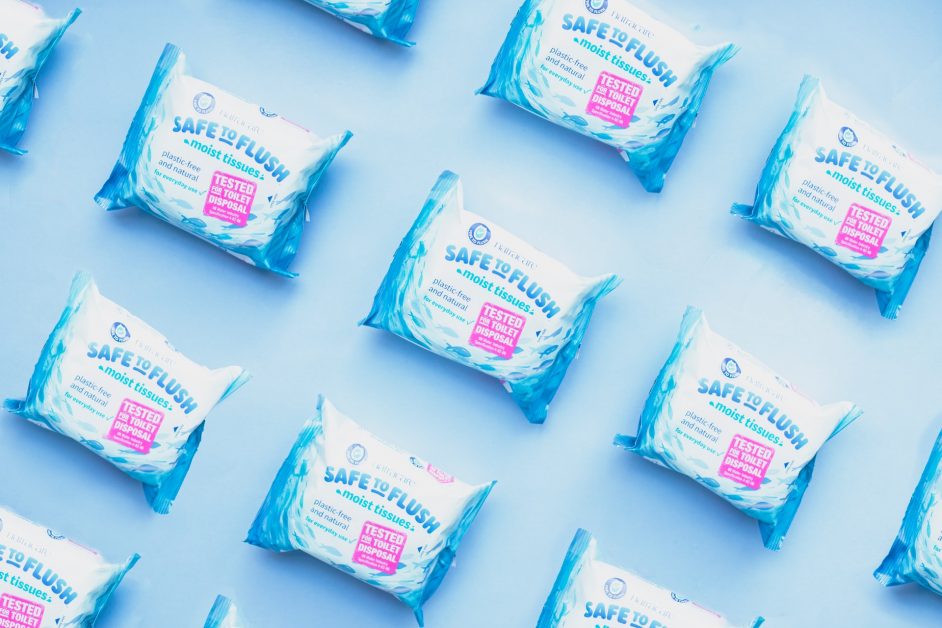Disposable wet wipes receive a lot of criticism for being harmful to the environment. They’re known for blocking drains and sewers but its also well known that most wet wipes do not biodegrade or break down naturally.
Because most wet wipes aren’t biodegradable, it could take 100 years or more for them to biodegrade within a landfill site. We all know that wet wipes should never be flushed down the toilet either, so this isn’t a viable way to dispose of them.
But there are several companies producing biodegradable wet wipes, which will eventually break down naturally once discarded. Some of these eco-friendly wet wipes can also be composted.
Many of these wet wipes are better for your skin too as they contain less harsh chemicals as well as being good for the environment.
Wet wipes that are biodegradable are made from plant fibres like viscose and cellulose and are around 99.4% water. The absence of plastic is what allows them to break down naturally.
These biodegradable wet wipes are typically organic cotton or bamboo.
Biodegradable Baby Wipes
Many parents prefer to buy biodegradable or natural baby wipes, as they are often gentler on skin and less likely to cause irritation.
Mum & You are a good example of a company producing 100% biodegradable wipes, with their baby wipes being suitable for new-borns and older babies.
The absence of alcohol and chemicals as well as synthetic fragrances also contribute to the biodegradable nature of these wipes.
Eco-friendly nappy brand Naty make compostable baby wipes. They’re better for the environment and they’re also better for babies as they’re soft and gentle and free from chlorine, alcohol, perfume, parabens, and phthalates. The inclusion of chamomile extract also helps to soothe nappy rash and sensitive skin.
Simply Gentle Organic Baby Wipes are approved by the Soil Association. They are biodegradable as they’re made from organic cotton and contain ingredients such as aloe and camellia sinensis leaf extract which nourish and protect skin.
Biodegradable Personal Wet Wipes
Some wet wipes designed for adults are also biodegradable, with several companies starting to widen their range of environmentally friendly products.
Natracare make a range of organic sanitary products which includes tampons, panty liners and feminine wipes. Made from 100% organic cotton, these wipes are biodegradable, compostable and fragranced with organic essential oils and extracts.
Of course, these organic products make sure not to include any petrochemicals or parabens which are often found in disposable wet wipes.
Natracare have actually been working with Water UK to develop a new Industry Specification for the UK’s first flushable tissue. These tissues are designed to break down after flushing by using an organic formula which is kind to the environment.
Make up wipe alternatives are becoming more popular too. They can be reused by washing them to remove any dirt and grime. ImseVimse’s organic reusable cleansing pads and wipes are a great example of eco-friendly beauty products.
Eco-friendly Biodegradable Household Wipes
Household wipes need to be more robust as they are used for cleaning surfaces throughout the home. This can make producing a biodegradable household cleaning wipe difficult.
Ecover have done it with their biodegradable Multi-Action wipes which clean just as effectively while being plastic free.
Reusable cloths are also an option as many are made from cellulose. Some brands even make sure the packaging is compostable too.
Conclusion
Most wet wipes on the market are not biodegradable, but there are now several companies producing biodegradable wipes as an eco-conscious alternative.
We suggest seeking out these companies and their products so we can reduce the amount of plastic waste being discarded in our environment.
